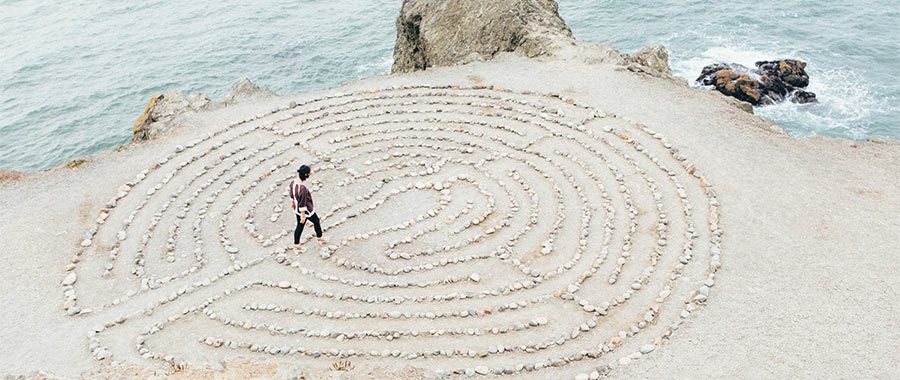The views expressed in our content reflect individual perspectives and do not represent the authoritative views of the Baha'i Faith.
Life has gradually taught me the benefits and the joy of delaying my gratification. Why put off enjoying the immediate rewards for my efforts? Allow me to explain.
Delayed gratification didn’t come naturally to me—I had to learn it by trial and error. If you’re not familiar with the concept, delayed gratification refers to the ability to put off something mildly fun or pleasurable now, to gain something even more fun, pleasurable, or rewarding later. For example, you could relax and watch TV the night before an exam, or you could practice delayed gratification and study for the exam—waiting to relax only after the exam is over. Some say the discipline of delayed gratification creates true success in life:
The ability to discipline yourself to delay gratification in the short term in order to enjoy greater rewards in the long term, is the indispensable prerequisite for success. – Brian Tracy
Everyone wants to enjoy the rewards of their efforts, and there is nothing wrong with that. The problem arises when we want instant gratification, rewarding ourselves right after half of the work is done and often before the job is finished. In extreme cases, one rewards oneself even before the work begins!
This kind of instant gratification indicates a lack of self-discipline and self-control, an absence of purpose in one’s life and the inability to set goals and see them through. It also sets up a self-defeating pattern: if we reward ourselves before finishing a task, we train ourselves not to finish.
Those who practice delayed gratification demonstrate a well-defined purpose in life, and the need for accomplishing worthwhile goals. Delayed gratification means accepting the awareness of life’s journey as a long one, and planning for it.
So, as I was thinking about how much I enjoy my quality time after doing everything on my to-do list for the day, I had an “a-ha!” moment: I realized that our lives themselves, with all their complications, present us with a massive exercise in delayed gratification.
Our comfort and progress in the next world depend on sacrificing many human desires. To progress spiritually, we must value our own will less than the will of our Creator. That way we can enjoy our journey, fully aware that we’ve delayed receiving the rewards of this physical world for the next one.
This process, in my estimation, represents the greatest delayed gratification one can imagine. The spiritual reward for preparing for the next life and not settling for the distractions of the material world serves as an excellent example of delayed gratification. The spiritual gratification in the next world, the Baha’i teachings tell us, goes far beyond our human comprehension:
… a religious individual must disregard his personal desires and seek in whatever way he can wholeheartedly to serve the public interest; and it is impossible for a human being to turn aside from his own selfish advantages and sacrifice his own good for the good of the community except through true religious faith. For self-love is kneaded into the very clay of man, and it is not possible that, without any hope of a substantial reward, he should neglect his own present material good. That individual, however, who puts his faith in God and believes in the words of God—because he is promised and certain of a plentiful reward in the next life, and because worldly benefits as compared to the abiding joy and glory of future planes of existence are nothing to him—will for the sake of God abandon his own peace and profit and will freely consecrate his heart and soul to the common good. – Abdu’l-Baha, The Secret of Divine Civilization, pp. 96-97.
The Baha’i teachings give us a constant reminder about the transitory of this world and focusing our thoughts and actions towards preparation for the next world:
Therefore in this world, he must prepare himself for life beyond. That which he needs in the world of the Kingdom must be obtained here. Just as he prepared himself in the world of the matrix by acquiring forces necessary in this sphere of existence, so likewise the indispensable forces of the divine existence must be potentially attained in this world. – Abdu’l-Baha, The Promulgation of Universal Peace, p. 226.
In this material world, we spend our lives doing things in hope of the rewards they will generate. We sacrifice mental and physical energy to earn money so that we can acquire the things we need and want—but some of us spend it without much thought for the future. Only a small percentage of people save money so that it accumulates until the time when they can exchange it for the things they desire the most.
Saving money means delayed gratification. If we do not spend money now, and save it so that we can enjoy it later when we need it more, we practice delayed gratification. In the same way, no reward or gratification is greater than entering the next world with a clear conscience, knowing that spiritually we have exerted the spiritual energy, and the selfless service to humanity, which will sustain us in the worlds to come:
Know thou that the Kingdom is the real world, and this nether place is only its shadow stretching out. A shadow hath no life of its own; its existence is only a fantasy, and nothing more; it is but images reflected in water, and seeming as pictures to the eye. – Abdu’l-Baha, Selections from the Writings of Abdu’l-Baha, p. 178.
From the moment we were born, our bodies journey toward the end of this physical realm. We all leave this physical world and enter the spiritual one sooner or later, hopefully realizing that this world was merely a short stopover in the long journey of our soul—which will eventually attain the presence of our Creator. When we forget that ultimate goal, we need reminders:
Just as he advances by progressive stages from the mere physical world of being into the intellectual realm, so must he develop upward in moral attributes and spiritual graces. In the process of this attainment he is ever in need of the bestowals of the Holy Spirit. … As the babe is born into the light of this physical world, so must the physical and intellectual man be born into the light of the world of Divinity. In the matrix of the mother the unborn child was deprived and unconscious of the world of material existence, but after its birth it beheld the wonders and beauties of a new realm of life and being. In the world of the matrix it was utterly ignorant and unable to conceive of these new conditions, but after its transformation it discovers the radiant sun, trees, flowers and an infinite range of blessings and bounties awaiting it. In the human plane and kingdom man is a captive of nature and ignorant of the divine world until born of the breaths of the Holy Spirit out of physical conditions of limitation and deprivation. Then he beholds the reality of the spiritual realm and Kingdom, realizes the narrow restrictions of the mere human world of existence and becomes conscious of the unlimited and infinite glories of the world of God. Therefore, no matter how man may advance upon the physical and intellectual plane, he is ever in need of the boundless virtues of Divinity, the protection of the Holy Spirit and the face of God. – Abdu’l-Baha, The Promulgation of Universal Peace, pp. 288-289.
















Comments
Sign in or create an account
Continue with Googleor